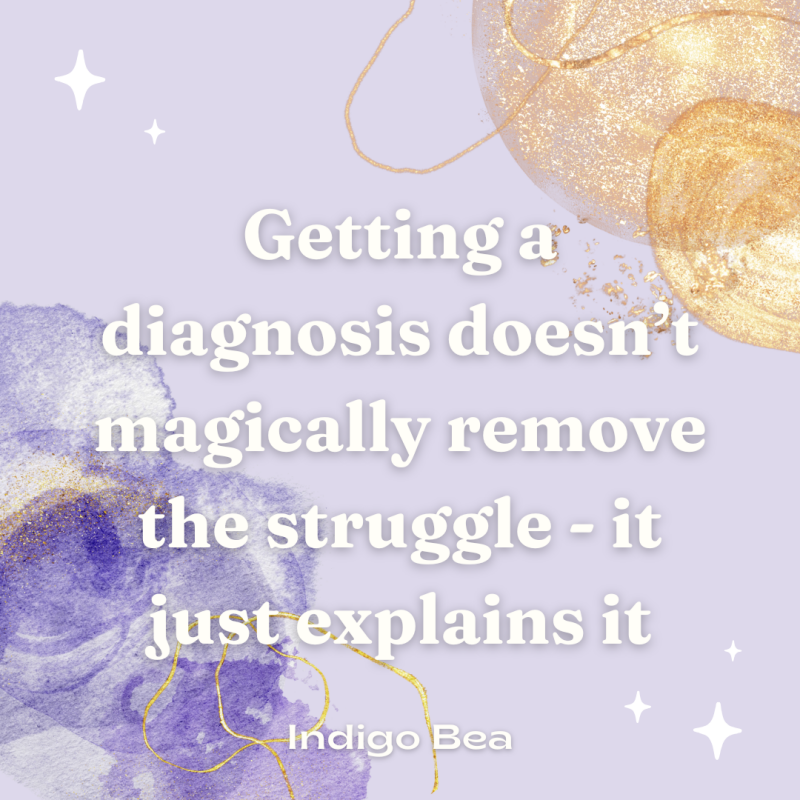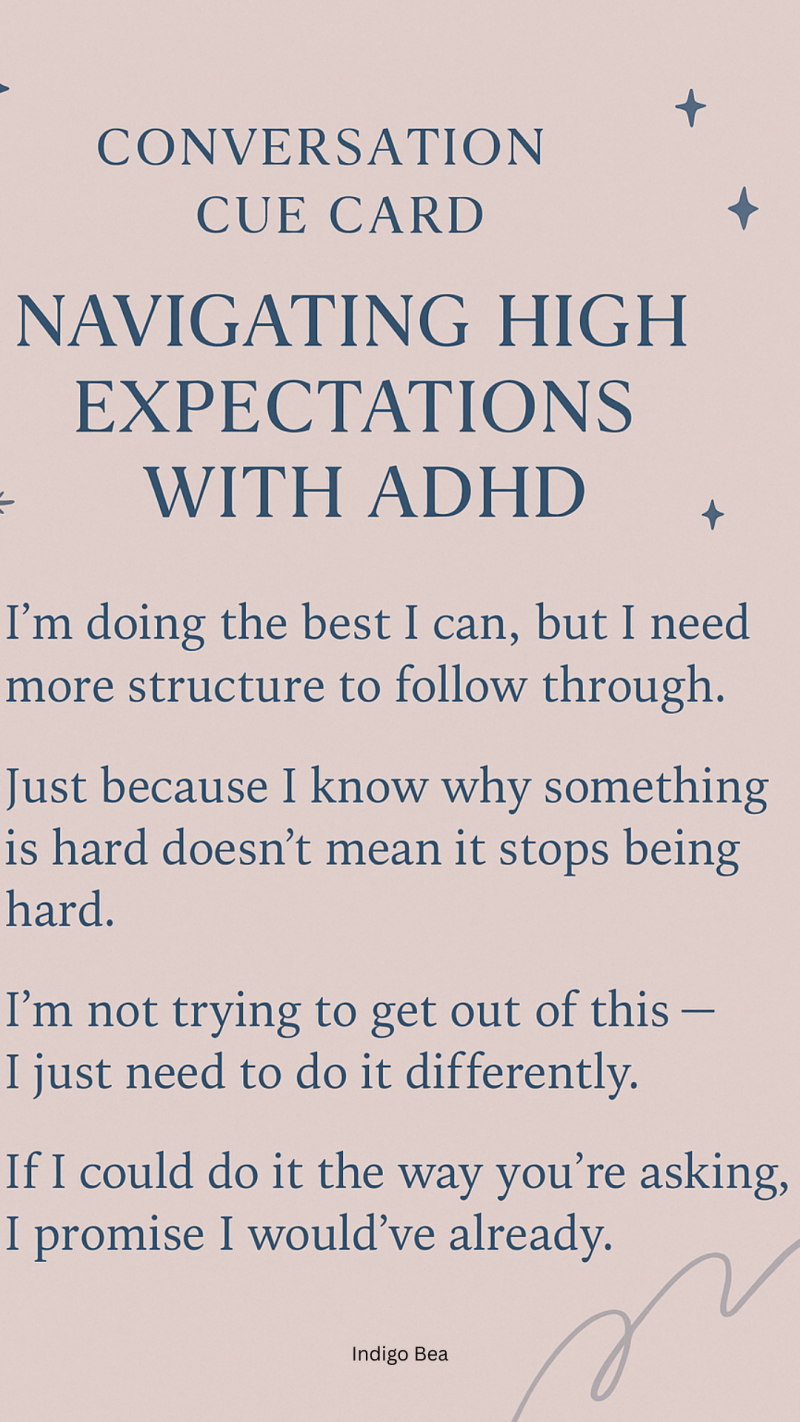You finally get a diagnosis.
You finally have words for the chaos you've carried your whole life.
You start understanding your patterns, your nervous system, your strengths and struggles.
But then...nothing around you changes.
Your boss still expects the same last-minute pivots.
Your family still says "just put your mind to it" like that'll solve everything.
Your friends think "knowing you have ADHD" means you're somehow cured.
Spoiler alert:
Getting a diagnosis doesn't magically remove the struggle -- it just explains it.
And while that should open the door to support and understanding, what we often get instead is...higher expectations.

"But You Know You Have ADHD Now, So Why Can't You Just...?"
Here's the thing: a diagnosis is not a reset button. It doesn't give you instant control over executive function, time blindness, or sensory overwhelm. It doesn't install a new operating system.
It gives you a manual for the one you've always had.
But unless the people in your life understand ADHD beyond the stereotypes, they might think you're now "more capable" of doing what they consider normal.
Which leads to...the invisible pressure to be neurotypical anyway.
It's Not About Making Excuses
Let's clear this up right now:
Acknowledging your brain's wiring is not an excuse.
Its a framework. It's context. It's a way to advocate for yourself in a world built for brains that don't buffer every five minutes.
You're not asking people to expect nothing from you.
You're asking them to expect things in ways that actually make sense.

Conversation Scripts for When Expectations Get Too High
Here are some soft but strong things you can say when people expect you to perform like their brains do:
"I'm doing the best I can, but I need more structure to follow through."
This shows effort and communicates a need.
"Just because I know why something is hard for me doesn't mean it stops being hard."
It reframes their misunderstanding with grace.
"I'm not trying to get out of this -- I just need to do it differently."
This one's great for work or collaborative tasks.
"I know it's frustrating. It is for me too. But this is how my brain works, and I'm still learning how to work with it."
Adds humanity to the conversation while holding boundaries.
"If I could do this the way you're asking me to, I promise I would have already."
Short. Direct. Honest.
And a Few Personal Workarounds (Because Life Still Needs Doing)
Let's balance the conversation with a few things you can do to support yourself while also educating those around you:
- Set visual boundaries - sticky notes, shared calendars, visible task lists. Not just for you, but to help others see how your brain works.
- Use "I" language - it's easier for people to hear you when you share from experience, not accusation. ("I get really overwhelmed when everything hits me at once" vs. "You expect too much".)
- Give pre-warnings - let people know in advance when you'll need reminders, extra time, or support with follow-through.
- Track the patterns - if the same situations keep sparking tension, that's a cue to set expectations in writing (even informally) ahead of time.
- Send resources - gently share a reel, podcast, or blog post (ahem - shameless self promotion ) that explains ADHD from your lens. Sometimes the lightbulb doesn't switch on until it comes from a neutral voice.

Let Me Be Clear...
I'm not asking for less responsibility.
I'm asking for realistic expectations -- ones that account for how I process, plan, and exist in this world.
I'm not blaming my ADHD for everything.
But I am acknowledging that it plays a part in how i function.
And it deserves to be part of the conversation -- not ignored once named.
So if you've ever felt like your diagnosis gave everyone around you permission to expect more instead of understand more...I see you.
And I promise: you're allowed to need support even after you have answers.
-XoXoX
Bea
Add comment
Comments